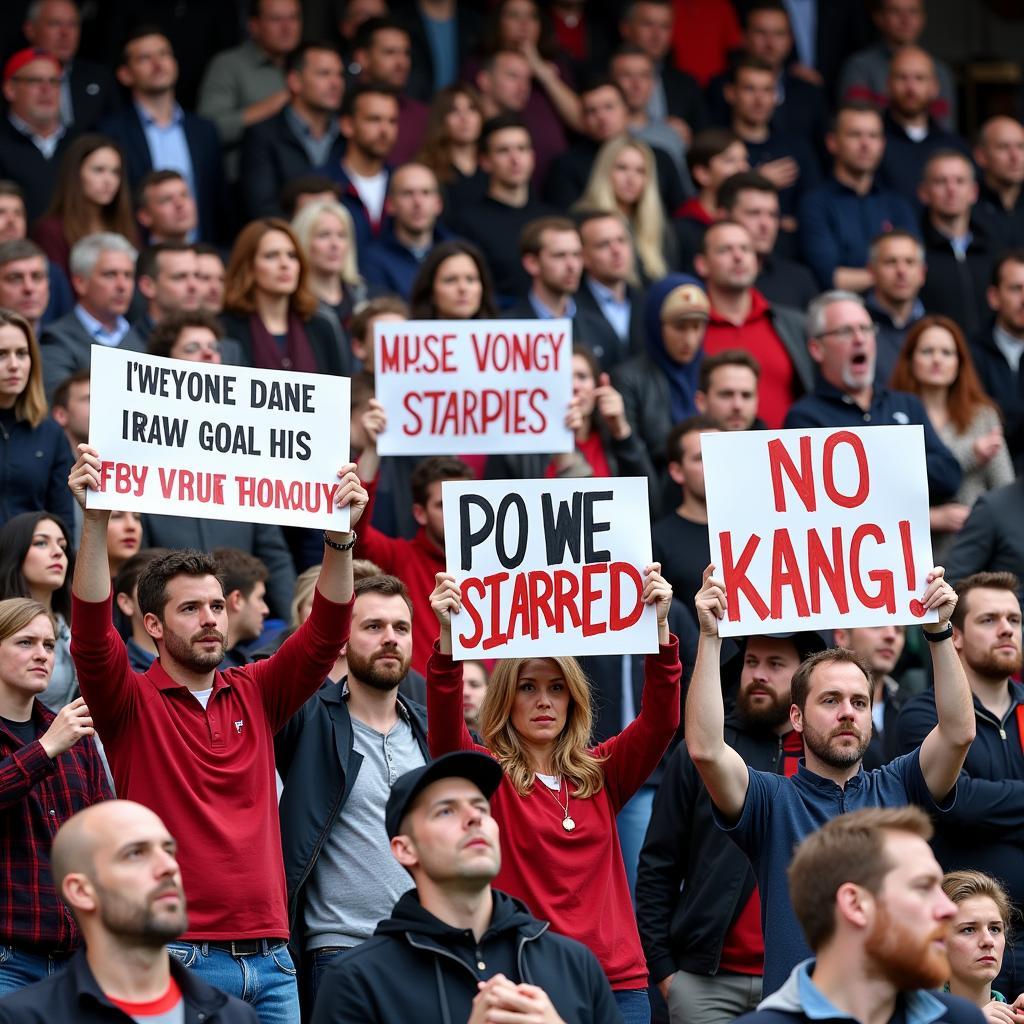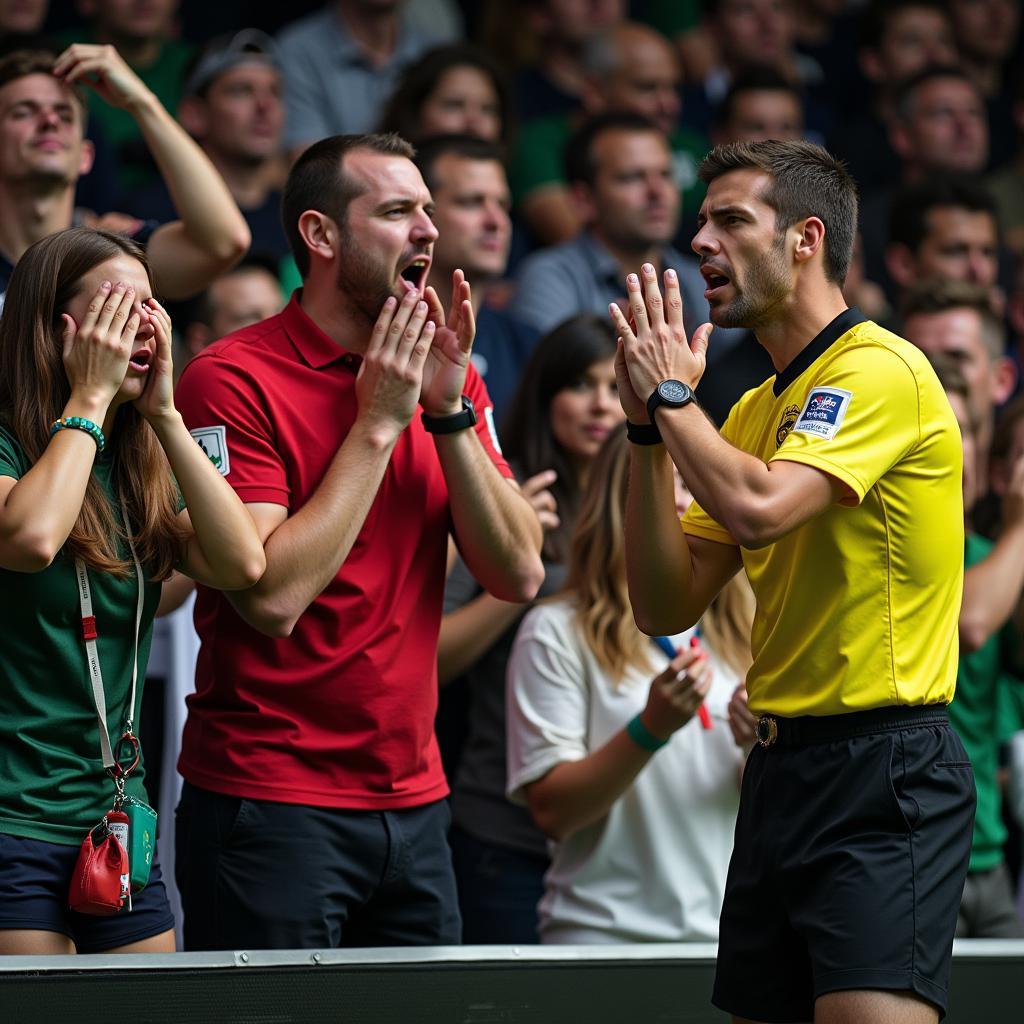Football, often dubbed “the beautiful game,” has an unparalleled ability to ignite emotions, fostering a unique bond between fans and their beloved teams. While this passion often manifests as unwavering support and infectious enthusiasm, it can also take a darker turn, leading to “fan outrage.” This article delves into the complexities of this phenomenon, exploring its triggers, consequences, and potential solutions.
What Ignites the Fury?
Fan outrage isn’t merely a knee-jerk reaction to a lost match. It stems from a complex interplay of factors that chip away at the trust and loyalty fans hold dear.
1. Poor Performance on the Pitch
Perhaps the most obvious trigger is a string of dismal performances. Fans invest significant time, emotion, and often, money in their teams. When their unwavering support isn’t reciprocated with a fighting spirit and a desire to win, frustration festers.
 Fans protesting poor team performance
Fans protesting poor team performance
2. Questionable Managerial Decisions
A manager’s tactics, team selection, and player transfers are under constant scrutiny. Fans, often armchair experts themselves, aren’t shy about voicing their displeasure when decisions contradict their own footballing logic.
3. Controversial Refereeing
Few things ignite fury like perceived injustices on the pitch. A dubious penalty, an offside goal allowed to stand, or a red card deemed too harsh can lead to accusations of bias, conspiracy theories, and an eruption of anger from the stands.
 Fans reacting to a controversial call
Fans reacting to a controversial call
4. Off-field Scandals and Controversies
Fan outrage isn’t confined to the boundaries of the pitch. Off-field scandals involving players or club management, financial irregularities, or ownership issues can deeply damage the club’s image and erode fan trust, leading to protests, boycotts, and vocal dissent.
The Consequences of Unchecked Outrage
While passion is part of football’s allure, unchecked fan outrage can have detrimental consequences:
- Violence and Hooliganism: At its worst, fan outrage can spill into violence and hooliganism, tarnishing the sport’s image and endangering players, officials, and fellow fans.
- Toxic Online Environments: Social media platforms, initially intended to connect fans, can become breeding grounds for hate speech, cyberbullying, and threats directed at players, managers, and even fellow supporters with differing opinions.
- Damage to Club Reputation: Persistent fan outrage and negative publicity can damage a club’s reputation, impacting sponsorship deals, player recruitment, and the overall atmosphere at the stadium.
Bridging the Gap: Towards a Healthier Fan Culture
Addressing fan outrage requires a multi-faceted approach:
- Open Communication: Clubs need to establish transparent communication channels with fans, addressing concerns, and explaining decisions in a clear and timely manner.
- Promoting Respect and Inclusivity: Cultivating a culture of respect and inclusivity within stadiums and online communities is crucial. This includes taking a firm stance against all forms of discrimination and promoting positive fan behavior.
- Empowering Fan Engagement: Creating platforms for constructive fan engagement can provide outlets for feedback and foster a sense of shared ownership in the club’s direction.
Conclusion
Fan outrage, while an inevitable part of the emotional rollercoaster of football, shouldn’t be ignored or dismissed. By understanding its root causes and addressing them proactively, stakeholders can channel this passion into a force for good, ensuring the beautiful game remains a source of joy, unity, and shared experiences.


